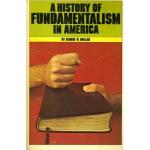Chapter 8 (pp. 63-64) of my book, Reflections on Radical Catholic Reactionaries (December 2002; revised second edition: 17 August 2013; slightly revised again in November 2023 for the purpose of the free online version). Anyone who reads this book should first read the following three introductory articles, in order to fully understand the definitions and sociological categories I am employing:
Introduction (on the book page)
Definitions: Radical Catholic Reactionaries, Mainstream “Traditionalists,” and Supposed “Neo-Catholics” [revised 8-6-13]
Radical Catholic Reactionaries: What They Are Not [9-28-21]
If you’re still confused and unclear as to my meanings and intent after that, read one or more of these articles:
Rationales for My Self-Coined Term, “Radical Catholic Reactionaries” [8-6-13]
My Coined Term, “Radical Catholic Reactionary”: Clarifications [10-5-17]
Clarifying My Coined Term, “Radical Catholic Reactionary” [4-3-20]
This book is modeled after the method and structure of the French mathematician and Catholic apologist Blaise Pascal’s classic, Pensées (“thoughts”). Catholic apologist and philosopher Peter Kreeft described this masterpiece as “raw pearls” and “more like ‘sayings’ than a book . . . ‘Sayings’ reflect and approximate the higher, the mode of Christ and Socrates and Buddha. That’s why Socrates is the greatest philosopher, according to St. Thomas (S.T. III, 42, 4).”
*****
- Radical Catholic reactionaries maintain that a Catholic born, say, in 1943, knows about how wonderful the Church used to be, whereas now it is a shell of its former glory. Such a person should be grateful that they weren’t born in 343 or 943, or 1043 or 1343 or 1743 — bleak periods all (and not the only ones). Many reactionaries suffer from historical tunnel vision.
- We are told that those who came of age after Vatican II have little idea what the Church was like before that time. One reactionary who leveled this charge against me was 46 (I was 41). So at the ripe old age of nine, he was well acquainted with the pre-conciliar Church, and equipped to authoritatively comment on it with that extraordinary level of experience and wisdom? Seriously, though, this “argument” is every bit as silly and invalid as pro-abortionists saying that men cannot take any position against abortion, since they aren’t women, or that priests and the pope can’t comment on sexuality because they are celibate. Experience isn’t everything. This is why we have books.
- As a passionate lover of history myself, I’m glad that most people don’t think that anyone who lived after a particular era is forbidden from expressing an informed opinion about it. On this basis, St. Paul couldn’t even speak about Jesus, since He never met Him before His Resurrection, or experienced the events of His life. St. Luke wasn’t qualified to write his Gospel. I trust that the point is made by now.
- If the roots of the present crisis hadn’t been present in the so-called “golden years,” it wouldn’t have come about. Fr. John A. Hardon said that the “revolution” began around 1940. Not everything was peachy keen. It wasn’t then and it isn’t now. Liberalism had already infiltrated the seminaries and colleges. Many things (like apologetics) are far better than they were then.
- In the 1950s, the Church was not dealing straightforwardly with the modernist problem and modern society. We could have taken the tack that the Orthodox took, and tried to ignore modernism, and pretend that it is not our duty as Christians to be the salt of the earth and light of the world, and the “city set on a hill,” and outwardly it may have continued to appear that everything was hunky-dory, but we also would have found ourselves caving in to passing fads and fancies of morals and philosophy, and compromised, as inevitably happens when institutions decide to refrain from taking on their ideological enemies. In other words, it is Edmund Burke’s maxim: “the only thing necessary for evil to triumph is for good men to do nothing.”
- Arguably, our present crisis was much more the fault (i.e., following convoluted reactionary reasoning) of Ven. Pope Pius XII than Pope St. Paul VI, because the former ought to have stamped it out before it took root and started corrupting the seminaries and colleges and theologians and entire orders. Liberals don’t pop out of nowhere, fully in bloom in all their hideous glory. The wheels were in motion long before Vatican II, in the “good ole days.” They had to be, or else there couldn’t have been liberals at Vatican II, trying to subvert it (just as with all previous ecumenical councils in Church history). But – because of the Holy Spirit and God’s promises — they didn’t manage to corrupt the council, and thus, for this and the other reasons above, Pope St. Paul VI is falsely and slanderously charged by reactionaries. Could he have been more forceful and vigilant? Sure, but then again Pope St. John Paul the Great was, and that didn’t gain him that many more brownie points or Good Housekeeping Seals of Approval from hyper-critical reactionaries.
*
*****
*
*
Summary: Ch. 8 of my book, Reflections on Radical Catholic Reactionaries (December 2002; slightly revised in November 2023 for the purpose of the free online version).













